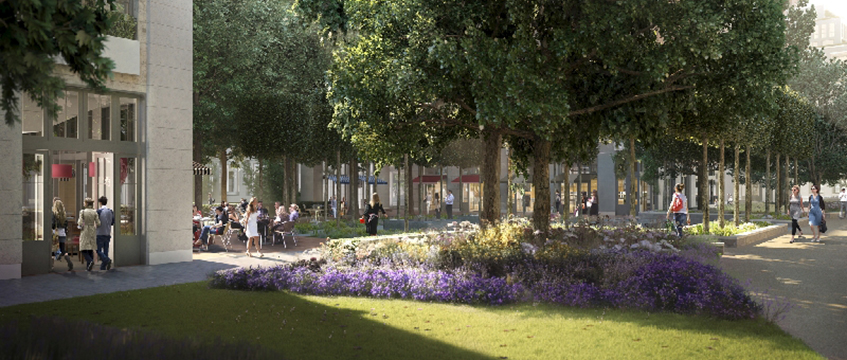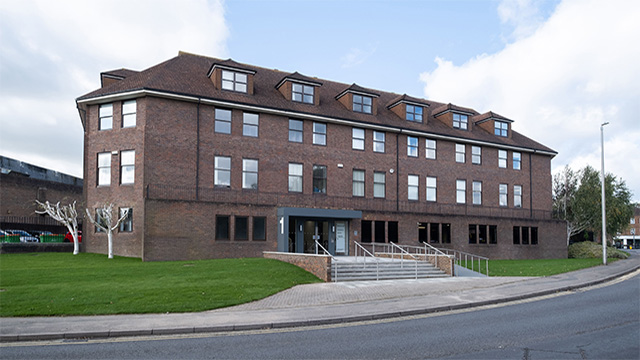Why Madison International has reasons to be chirpy
With its future still to be determined, investing in Capital & Counties may not be for everyone, but this isn’t something deterring Madison International Realty from taking advantage of its discounted share price.
The US-based investor, which focuses on finding opportunities to buy out partners or recapitalise structures across the US, Europe and the UK, made its name on UK shores in 2015, 18 months after it invested in the then majority owner of Canary Wharf Group, Songbird Estates.
Having bought a 2.5% stake in the company for £25.6m when it was trading at £1.40 per share in 2013, Madison made a 254% return when Brookfield and the Qatar Investment Authority took over Songbird with a £3.50 per share offer in 2015.
With its future still to be determined, investing in Capital & Counties may not be for everyone, but this isn’t something deterring Madison International Realty from taking advantage of its discounted share price.
The US-based investor, which focuses on finding opportunities to buy out partners or recapitalise structures across the US, Europe and the UK, made its name on UK shores in 2015, 18 months after it invested in the then majority owner of Canary Wharf Group, Songbird Estates.
Having bought a 2.5% stake in the company for £25.6m when it was trading at £1.40 per share in 2013, Madison made a 254% return when Brookfield and the Qatar Investment Authority took over Songbird with a £3.50 per share offer in 2015.
Could Madison be attempting to repeat that success with its acquisition of a 3.13% stake in Capco at 213.10p per share in May?
“We had a really nice run on Songbird,” says Madison’s co-chief investment officer responsible for European investment Derek Jacobson. “If similar happened we’d be thrilled, but every situation is unique. It’s completely different real estate and a completely different time.”
Going for another song?
The main drag on Capco’s share price is considered to be its share of a 77-acre development site in Earls Court, which has plummeted in value since 2017 and has been tainted by a falling out with Hammersmith & Fulham Council.
Capco’s 63% stake in the site, held in a vehicle with TfL, was recently revealed to have fallen in value from £803m in 2015 to £412m shortly after Madison bought its stake in the business.
Since last year, Capco has been exploring a possible demerger to separate its prime Covent Garden assets, which rose in value by 1.6% to £3.6bn on a like-for-like basis in 2018, and the Earls Court holdings into two entities, or a sale of its Earls Court holdings.
Most recently Canary Wharf Group has been linked with buying Earls Court after talks with CK Asset Holdings came to nothing.
Gary Yardley, who led on the Earls Court scheme for Capco and was leading on the potential demerger proceedings, left the business last month.
There has also been speculation that should Capco split and/or Earls Court be off-loaded there could be several buyers waiting in the wings to for the Covent Garden assets.
Meanwhile, the government has rejected a bid by the residents of two estates located on 22 acres of Capco’s Earls Court development to take control of their social housing stock.
Housing minister Kit Malthouse said the application was refused as it would have “a significant detrimental impact on the regeneration of the local area”.
More news on what Capco plans to do is anticipated later this month when the firm reports its half-year results.
“For us it’s always a question of what price you can step in at. The shares have reflected some of the uncertainties about the ultimate success of a demerger or the sale of Earls Court. There’s also the overall concern about retail and how that affects Covent Garden,” Jacobson says. “The bulk of the value of Capco is in the Covent Garden site and we think that’s the type of retail that will survive and flourish. The proof is in the underlying performance.”
He adds: “Our position in Capco is about taking advantage of where the shares are trading today versus what we think is the underlying value of the real estate.”
He says Madison invested in Capco because there are so many different ways of realising true value, be that by continuing to manage the business as it is, or via a sale of all or part of it.
“We love investing in situations that have multiple positive outcomes,” says Jacobson.
“We’re at the 10th year of an unprecedented run in real estate values and that’s pretty consistent globally and, to the extent that there is some correction or bump or whatever it might be if you’re thinking defensively, we like that type of play.”
Elsewhere in London
Madison also owns a 14% stake in the London-focused fund WELPUT, which went through its own shake-up earlier this year.
The interest was bought in 2016 for more than £150m out of the $1.4bn (£1.1bn) of equity raised for Madison’s Liquidity Fund VI to buy property in the US, UK and Western Europe. The fund also bought a 50% stake in Oxford Properties’ Paternoster Square assets for £200m.
Last year, it was reported that WELPUT – then managed by Schroders – had been subject to redemption requests that hit its limit every year since 2016, prompting restructuring talks. In February, it was announced that Schroders would be replaced by GreenOak as manager of the fund, with Grafton Advisors, a wholly-owned subsidiary of GreenOak, retained as its property adviser.
Jacobson says the changes presented an opportunity for Madison to become more involved in the fund, and that the ownership structure of WELPUT had undergone a similar change to that of many other funds.
Madison also retains a share in 133 Houndsditch, EC3, where it recently signed WeWork to its roster of tenants.
Looking for opportunity
Jacobson is clearly confident in Madison’s UK investments.
“If you look back to the financial crisis and its aftermath, core, prime assets were the most resilient and recovered the quickest. Tenants wanted to be in them and institutional buyers wanted to buy them,” he says. “If something does happen, we think we’ll be happy with more core exposure in the UK.”
The “something” that might happen, of course, means Brexit, which Jacobson says could present opportunities for Madison to “come into situations where investors are looking to perhaps sell down, monetise or sell off various positions”.
“If you look at the letting market there’s a good amount of strength,” says Jacobson. “People are taking and using space and to me that’s a good sign, despite what the politicians may do or not do, or how they do it or when they do it. Long term we think London will continue to be an interesting and productive place to put capital into.”
He says there is capital chasing London from every corner of the globe, pointing out that during a recent trip to the Middle East, “London was a topic on every investor’s mind”.
“I have heard people wanting to get everyone’s view on what Brexit means,” he says. “No one has said let’s wait and see before we do anything. People would like to see good opportunities.”
While Madison plans on maintaining its focus on core, prime assets, it is also keeping an eye on the fast-growing private rental sector in the UK.
“We think the demographics of many of the markets that we’re active in lend themselves to that asset class [PRS],” Jacobson says. “We also think that it’s an interesting protection in case there is some turbulence in the market.”
He adds: “We’re at the 10th year of an unprecedented run in real estate values and that’s pretty consistent globally and, to the extent that there is some correction or bump or whatever it might be if you’re thinking defensively, we like that type of play.”
There is no denying that Madison is certainly bullish when it comes to its view on London. And if its play in Capco turns out to be even half as successful as its play in Songbird, it will have plenty to be chirpy about.
To send feedback, e-mail louise.dransfield@egi.co.uk or tweet @DransfieldL or @estatesgazette











